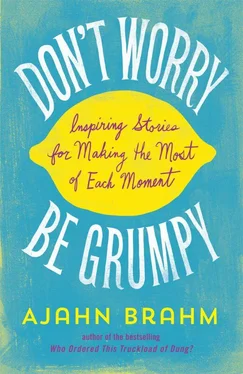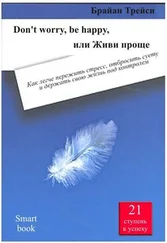Monks and Nuns Beating the Odds
I don’t know why it is, but Buddhist monks and nuns seem to be able to beat the odds, which may be why we are not permitted to gamble.
A well-known Buddhist nun had just finished teaching a meditation retreat in the UK and had stopped for lunch on her way to Heathrow airport. The restaurant that they chose was attached to an English pub, and they had to pass through the bar to enter the dining room. After their lunch, the driver decided to get rid of a small number of English coins in the jackpot (pokie) machine in the bar. She had just inserted a two-pound coin when the Buddhist nun walked past.
“You have all the good karma, Sister. You pull the handle,” said the driver.
In a moment’s lapse of mindfulness, the Buddhist nun pulled that handle. The wheels went round before stopping one by one.
Jackpot! The bells rang and lights flashed as thousands of pounds poured out of the machine onto the nun’s simple patchwork robe.
Patrons in the pub fell silent and stared. The barman picked up a small bell and began ringing it. Then he announced to the stunned nun that, according to long-standing tradition, whoever wins the jackpot must buy a round of drinks for everyone in the bar!
Thus it was that for the first time in 2,500 years since the Buddha meditated on this earth, a Buddhist nun bought whiskeys, gin and tonics, and beer for dozens of happy customers in a bar.
As for my own gambling story, a few years ago a disciple asked me to bless his friend’s new shop. My mistake was not asking what type of shop it was.
When I arrived in the shopping mall early one morning for the ceremony, I discovered that it was a stall selling only one product, lottery tickets! It was too late for me to get out of performing the ceremony, so I blessed the lotto stall with as much gusto as I would bless a doctor’s clinic.
A couple of years later, I was reading the weekend newspaper when I saw a feature article on that same lottery stall that was entitled “The Luckiest Lottery Shop in Australia.” And where is that shop? I am not telling. Also, I am not blessing any more lottery shops!
As someone trained in theoretical physics at Cambridge University, I’m not that open to the occurrence of miracles. But there was one event I witnessed that has no other explanation.
It was the thirtieth anniversary of our Buddhist Society of Western Australia. We had come such a long way from the most humble of beginnings, and it was time to celebrate our success and show that Buddhism had arrived in Western Australia. We hired the most central open-air location in Perth, the Supreme Court Gardens, which to our amazement was free that day. We ordered a huge new golden Buddha statue from Thailand for the occasion. No expense was spared for the stage, tents, food, and entertainment. We managed to persuade the premier of Western Australia, the Honorable Dr. Geoff Gallop, to attend, as well as ambassadors and other dignitaries. The event was to occur on a Sunday evening on the full moon of May, which is the holiest night in the Buddhist calendar. It was such immense hard work, but gradually everything was coming together.
On the morning of the event, I woke up to heavy rain. The forecast said it was to get much worse. A storm warning had been issued for Perth, with the main part of the storm expected to hit Perth at 7:00 p.m., precisely when the ceremony was to begin.
As we set things up throughout the day, we all got soaked to the skin in continual heavy rain. Three times, the premier’s office called me to ask, “Are you cancelling? The storm is forecast to get worse!” Three times I replied, “No way!” A good friend, who had spent his whole working life as a merchant seaman, pointed at the falling barometric pressure and explained that a lifetime of experience at sea told him that a bad storm was certainly coming. Even one of my monks took me aside and advised me to stop making a fool of myself and cancel. I refused again.
Fifteen minutes before the first VIP arrived, a worker came into the tent where I was making some final adjustments, sobbing, “Come out! Come out!” My thought was that something had gone terribly wrong, but all she did was point upward to the sky. The clouds had parted for the first time that day to reveal the splendid full moon.
The rain had stopped.
Soon the premier arrived with all the other dignitaries. A film crew was following me repeating again and again, “This is weird! This is weird!” We conducted the ceremony in dry weather under the radiant full moon.
Once the ceremony was completed, the clouds closed in and the rain poured down all night. The following morning, the event site was under two inches of water, and the nearby freeway was also flooded. Many people who were invited never came, because in the surrounding suburbs the rain lashed down without stopping and many trees were uprooted. They couldn’t believe that we held the ceremony in dry conditions. The company that hired out the stage and tents wrote an email saying, “We don’t know who this Ajahn Brahm is, but we would like to ask him who is going to win at the racetrack today.”
This was not a mere shower that had cleared but a massive storm, and only over the site for our ceremony.
There is no other explanation — it was a miracle.
A young American had just finished his work for the Peace Corps in Thailand when he decided to extend his stay and try out the lifestyle of a Buddhist monk. He was staying in a hotel in Bangkok and, not knowing where to go to become a monk, asked the hotel concierge for advice. It was not the usual request made of the concierge in a Bangkok hotel, so it was not surprising that the advice he was given was not that accurate.
The young American was told to go to a monastery called Wat Bovornives in central Bangkok, where some Western monks sometimes reside. He was advised to take along some food to offer to the monks on their early-morning almsround and then to ask one of those monks for ordination.
He followed the advice and arrived outside the locked monastery around 4:00 in the morning. As he walked up and down the deserted street wondering what to do, an elderly Thai gentleman approached him and asked in perfect English if he could be of any help. When the American explained his purpose, the Thai man answered that the monastery gates would not open until 5:30 but, as he had the key, he would show him around until the monks came out.
The Thai gentleman opened an iron gate that led to the main ordination hall, turned on the lights, opened the beautiful carved doors, and led the young man inside. For the next hour, the Thai gentleman gave a detailed and fascinating description of the traditional Thai paintings on the building’s walls, including who sponsored the works and why. Some were donated to make merit for a deceased parent or to restore to health a sickly child. The hour flew by and, after completing the description of the final mural, the Thai man told the American to go wait outside, as a senior Thai monk would be coming out soon. He was to put the food in the monk’s bowl and then ask for ordination. Meanwhile, the Thai gentleman would lock up.
The American did as he was advised and was later led into the monastery by the senior monk to begin the basic training before he would be given ordination as a Buddhist monk.
However, there was a problem. The American could not understand the English of the Thai monk assigned to train him. “Can I have another monk to teach me?” he asked.
“This is the best English speaker in the whole monastery,” he was told.
“What about that elderly Thai man who met me on that first day? The one who opened the iron gate and led me inside the ordination hall. He spoke perfect English,” replied the American.
Читать дальше










